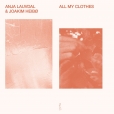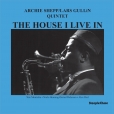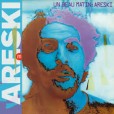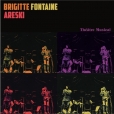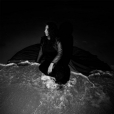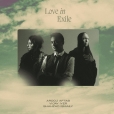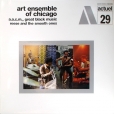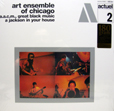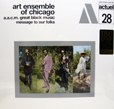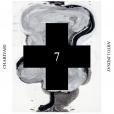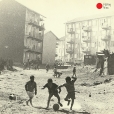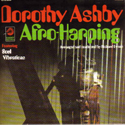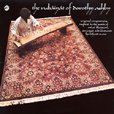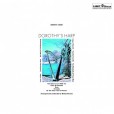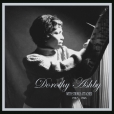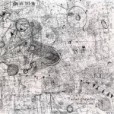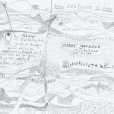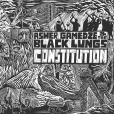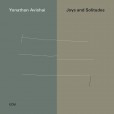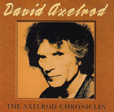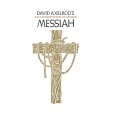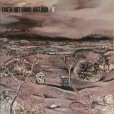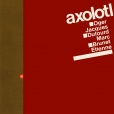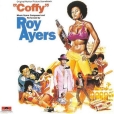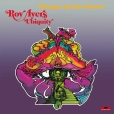Your basket is empty

Luminously communicative improvisations by pianist Anja Lauvdal and drummer Joakim Heibø, juggling bristling ecstasy and desolate reflection. Impressive; warmly recommended.
A recording at the Maison de la Radio in May 1973; broadcast on France Culture later that year, but never released till now. Songs from their various early-seventies albums, but stripped right back, highlighting Fontaine’s inventive and provocative poetry, with only their own accompaniment of guitar, percussion, and accordion.
Superb singing, in Urdu, with reined-in accompaniment by Vijay Iyer on pianos and electronics, Shahzad Ismaily on bass and Moog.
‘Great Black Music’, and funny.
Hotly recommended by our friends Rush Hour in Amsterdam: ‘Starting off with the positively upbeat Umgababa by Kippie Moketsi and the infectious soul jazz of Pat Matshikiza’ s Dreams Are Wonderful (also featuring Kippie Moketsi) proceedings mellow out on side B, only to get extra heavy on the C-side with the sample-ready fusion groover Night Express off their crazy rare 1976 album of the same name and the irresistibly funky Blues for Yusef by Lionel Pillay, two of the many highlights on this action-packed thriller.’
‘Afro-Harping is filled front-to-back with sumptuous and hypnotic grooves. Its African percussion, soulful orchestrations, in-the-pocket rhythms — and Dorothy’s virtuosity — take it far beyond jazzy mood music (as sampling by Pete Rock, Kendrick Lamar, Dilla, Madlib and co bears ample witness).
‘This deluxe version features eight bonus tracks from the four-track session reels that are arguably superior to those on the original album, including an explosive rendition of the Soul Vibrations single, extended versions of the title track and Little Sunflower, and two fantastic, jazzy readings of Theme from Valley of the Dolls.
‘Additional flavour is provided by some of the in-studio atmosphere. The reels also featured the voices of Dorothy, producer Richard Evans, and others: encouragement, laughter, a brief burst of beatboxing, a spat about how many bars had just been played… In many cases these elements have been retained, conjuring up the sheer joy of being in the room with Dorothy and some of Chicago’s finest musicians in the winter of ’68.
‘By that time, Evans was running every aspect of Cadet Records, applying his emerging funk formula to new and established artists, with an overflowing pipeline of work for Ramsey Lewis, John Klemmer, Odell Brown and many more. His growing Afrocentricity, coupled with Ashby’s desire to highlight the Black struggle that had been the subject of several plays (from which three of the tracks on Afro-Harping were drawn) that she and her husband John had produced in her hometown of Detroit, provided the foundations for the recording of Afro-Harping. ‘Her jazz playing was very New York-ish, very sophisticated,’ Evans has recalled. ‘But I wanted things to be very Black, very funky at Cadet.’‘
‘Housed in a digipack with 28-page booklet. The sound is newly transferred from the original ¼-inch tapes, and remastered.’
Her funkiest record — Eastern-style settings of the writings of Omar Khayyam — with electrified harp, vibes and Japanese koto wrapped up in Richard Evans’ soulful arrangements.
‘Verve By Request.’
‘Imagine having been a Black female artist & innovator in the ‘60s. Imagine being a jazz musician with a focus on the concert harp. Oh, to be alive at that time… in music… in culture… in politics. This was Dorothy Ashby, and she was so much more than her musical output. She was a true visionary; her impact is still heard in many genres and eras of music, even today’ (Brandee Younger).
Her first six studio LPs — for Regent, Prestige, Jazzland, Argo, Atlantic — remastered from master-tapes, where these survive. 180g vinyl; beautifully sleeved and boxed.
The Jazz Harpist, Hip Harp, In A Minor Groove, Soft Winds: The Swinging Harp Of Dorothy Ashby, Dorothy Ashby, and The Fantastic Harp Of Dorothy Ashby.
With a 44-page book featuring a foreword by Brandee Younger, and impassioned and deeply researched liner notes, including interviews with those that knew her best, and lovely photos.
Just one!
Startlingly accomplished new jazz from South Africa, teeming with ideas, influences and idioms.
Maybe you remember Asher’s drumming on Angel Bat Dawid’s The Oracle.
Hotly recommended.
His Heavy Axe album and various collaborations from the mid-seventies, with Cannonball, Johnny Guitar and the ineffable Hampton Hawes, amongst others. A factory-sealed cut-out, with a notch in the case.
From 1971, contemporary settings of Handel, illuminated by psychedelic guitar, flute and electric piano, and a break-happy, funky rhythm section. Carol Kaye plays bass; Cannonball Adderley conducts the 38-piece orchestra (fresh from his own Black Messiah sessions). The gospelised choral sections carry the swing, as seems right.
